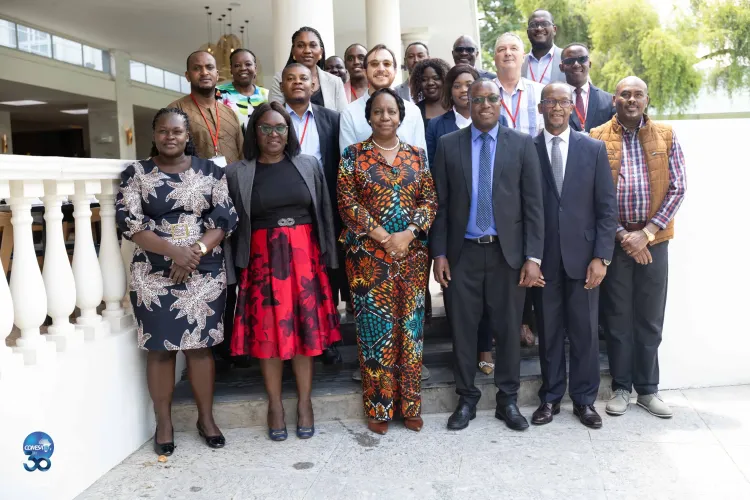Zambia Urges African Nations to Invest in Climate-Resilient Solutions

Lusaka, Nov 28 (NationPress) The Zambian Vice President Mutale Nalumango urged a unified effort towards investing in climate-resilient technologies and initiatives aimed at alleviating the adverse effects of climate change, as the 45th meeting of the Common Market for Eastern and Southern Africa (COMESA) Council of Ministers commenced here on Thursday.
COMESA is recognized as a regional economic entity in Africa, encompassing 21 member states.
"Preparedness for climate change, diversification, innovation, and the creation of climate-resilient value chains must be prioritized to shield the region and its member states from the detrimental effects of climate change," stated the Zambian Vice President.
This assembly is themed "Accelerating regional integration through the development of regional value chains in climate-resilient agriculture, mining, and tourism."
As reported by Xinhua news agency, Vice President Nalumango highlighted that agriculture, mining, and tourism continue to be the backbone of the region's economy, providing sustenance for millions, despite their increasing vulnerability to climate change.
She underscored the necessity for enhanced value addition to boost these sectors' economic contributions, emphasizing the critical need for countries to collectively adopt innovative and sustainable approaches to combat the challenges posed by climate change. She encouraged COMESA nations to share technologies, pool resources, and invest in shared infrastructure while ensuring connectivity across transport, energy, and digital networks.
COMESA Secretary-General Chileshe Kapwepwe called for cooperation in fortifying both economic and social integration. She noted that the repercussions of climate change, including extended periods of drought and flooding, have led to severe consequences in the region.
Kapwepwe highlighted the importance of increased investments in transforming sustainable agri-food systems, as food and nutrition insecurity persist as significant challenges exacerbated by climate-induced shocks.









